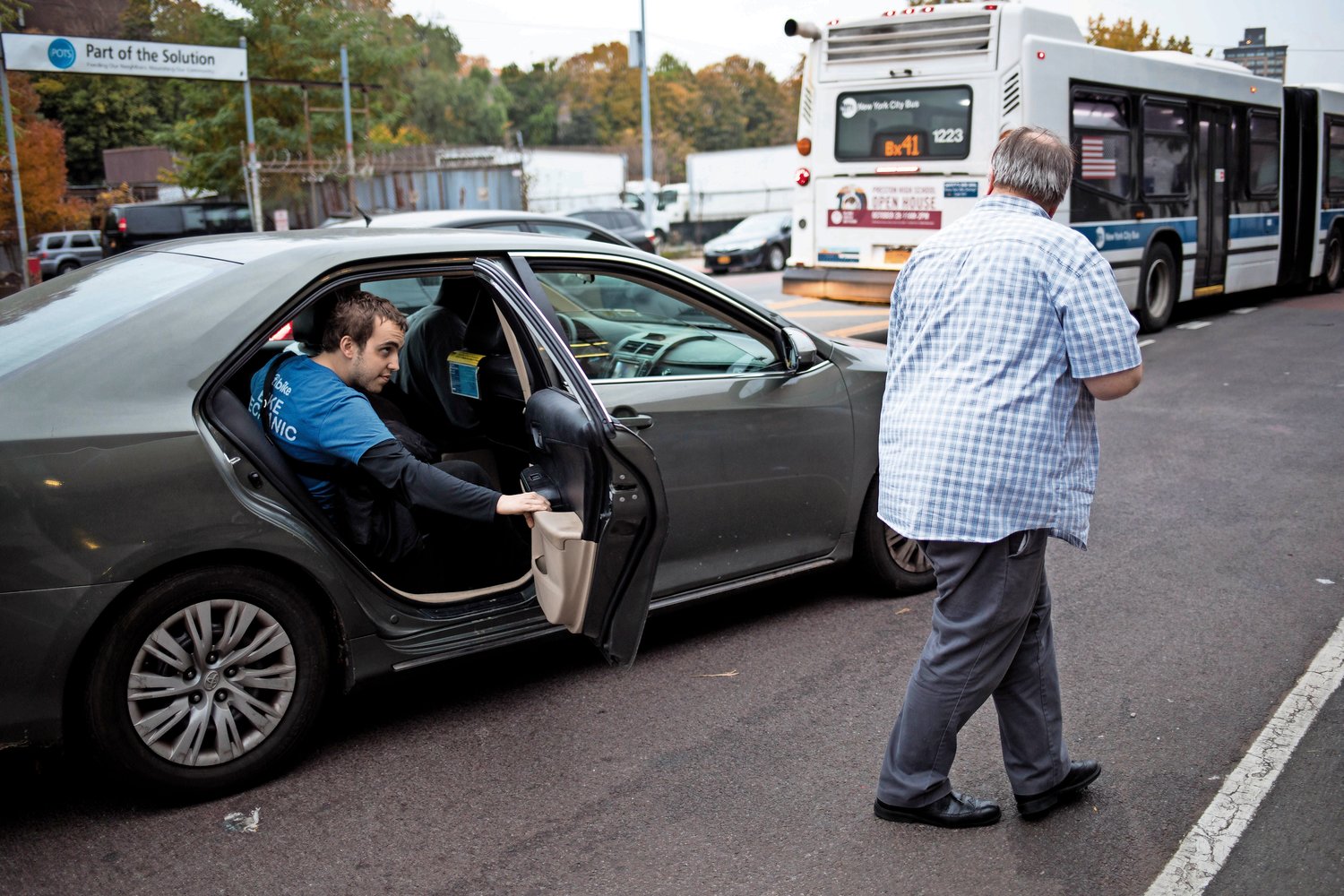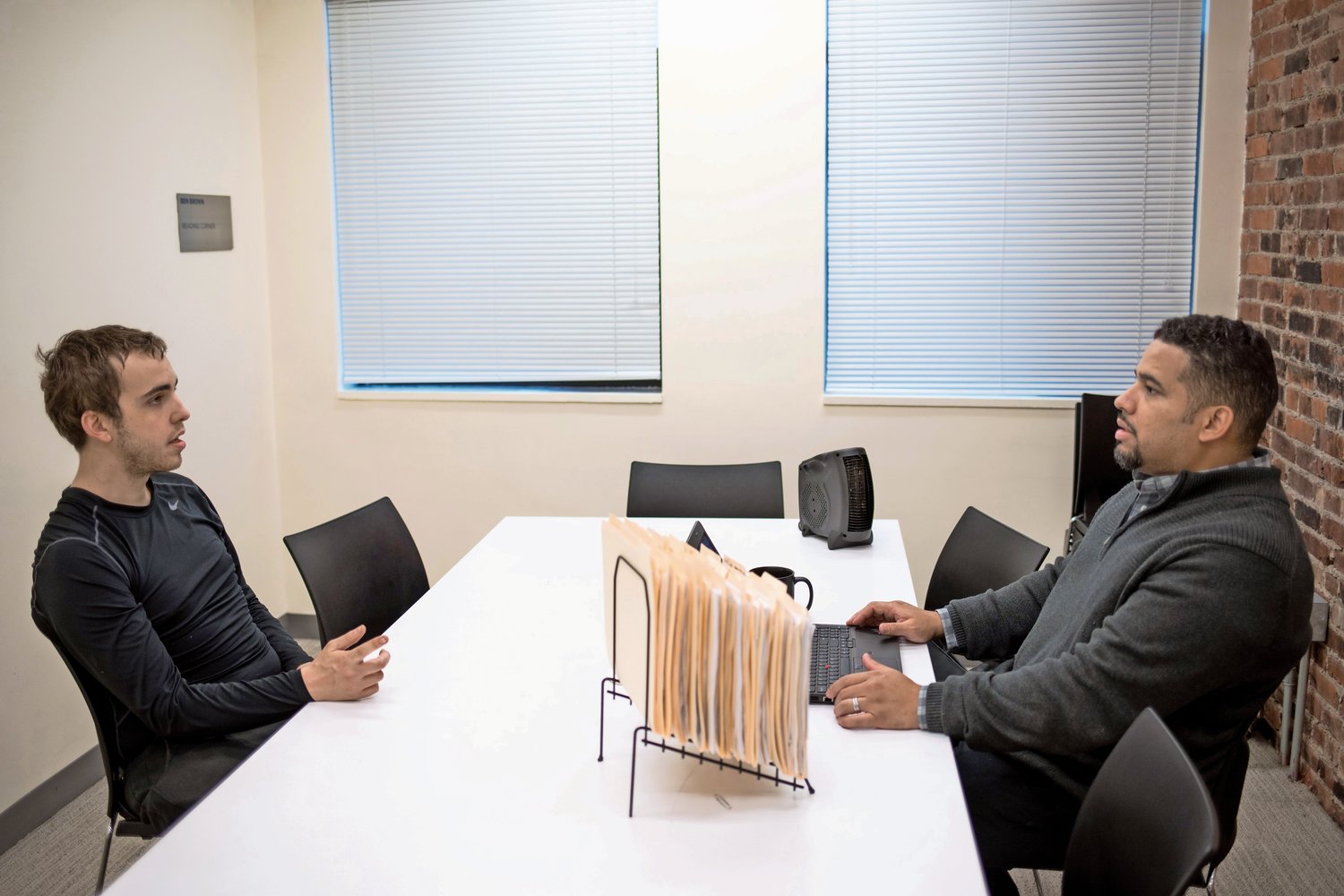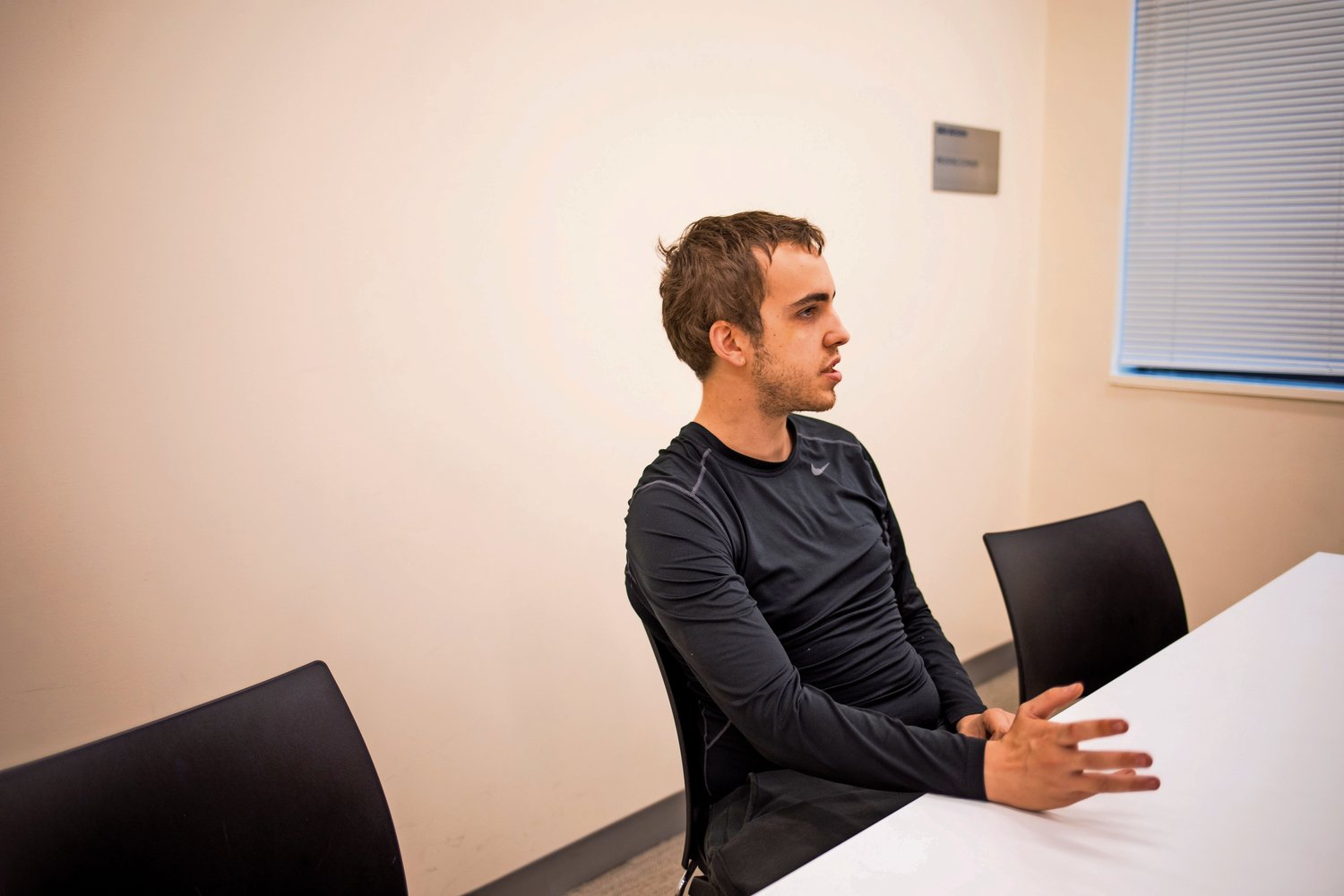Want to build? Councilman says help homeless first
The casual observer probably wouldn’t guess David Obelcz is homeless.
A series of misfortunes largely beyond his control plagued Obelcz over the past two years — including a roommate he claims surreptitiously squandered his rent money on alcohol, leading to an eviction. But those misfortunes are now fortunes — he landed a full-time job as a mechanic for City Bike at a facility near Park Slope, earning $16.50 an hour. A job Obelcz found through the Bronx-based safety-net organization Part of the Solution, or POTS.
Obelcz hopes to find a one-bedroom he can afford close to where he works. But in the meantime, he relies on a Midtown drop-in center to help him find a safe place to sleep at night, usually at one of a number of churches around the city providing overnight beds.
But those beds are on a first-come basis, Obelcz said, meaning if he runs into delays commuting from Brooklyn, he ends up having to sleep in a lawn chair.
“There are many people that you see in Manhattan and the Bronx that you don’t know are homeless,” Obelcz said. “People at my work, they don’t know that I’m homeless. They think that I’m just some other guy that lives in Midtown.
“For me, it paints a picture of people who are working, willing and able — ready to move out, to become self-sustaining, self-sufficient. But they can’t because rent in New York is ridiculously high. One of the hardest things for these people — especially myself — is finding housing.”
City at ‘critical juncture’
Yet, weeks after Mayor Bill de Blasio reportedly brushed off a homeless woman who interrupted his gym workout to ask him why the city wouldn’t set aside more apartments for the homeless, relief may be on the horizon.
Councilman Rafael Salamanca Jr., introduced legislation Oct. 31 that would mandate any rental housing project that receives taxpayer subsidies — such as tax abatements, loans, tax credits or reduced-cost land — must set aside 15 percent of its created or preserved units for people living in the city’s shelter system. It would take effect 180 days after it becomes law.
“Our city is at a critical juncture,” Salamanca said in a statement, adding that since 2014, the number of homeless people in the city’s shelters has stagnated around 60,000. “It is clear that we need legislation that could actually be effective citywide. We need to act now.”
The proposed legislation would not apply, however, to already approved contracts, said Lauren Tsuboyama, Salamanca’s communications director. Nor would she describe it as a return to so-called cluster housing — which places homeless people and families in privately owned apartments, often in run-down buildings, that are paid for by the city — which de Blasio has said he wants to shut down by 2021.
“Cluster site housing has typically been a problem because of the slumlord conditions often found at these sites,” Tsuboyama said.
The mayor’s current housing policy calls for about 15,000 apartments be allotted for the homeless. de Blasio has voiced strong opposition to increasing that number, although he’s “focused on getting the maximum number of families out of shelters and into homes,” said spokeswoman Jaclyn Rothenberg.
Building new apartments is part of that strategy, Rothenberg said, but it’s a much more expensive and slower option than providing services like rental assistance.
“The mayor’s housing plan must balance the need for quick solutions with long-term approaches that also help low- and middle-income” families find housing they can afford, Rothenberg added.
Not all building tax
abatements considered
Since de Blasio took office in 2014, the city has financed the creation or preservation of 109,000 affordable units, including 8,900 homes for the homeless, according to the mayor’s office.
While de Blasio’s plan generally calls for just a 5 percent set-aside, according to published reports, since May of last year the city’s housing preservation and development department set a new standard requiring a minimum 10 percent of apartments in virtually all affordable developments be allotted for the homeless, said HPD spokesman Matthew Creegan. In some developments, the allocation can be as high as 60 percent.
“This bill would undermine the flexibility we need to adapt to the market and continue delivering housing for homeless New Yorkers as well as low-income New Yorkers and those on the brink of homelessness,” Creegan said.
But city council Speaker Corey Johnson has expressed support for Salamanca’s bill, which could bode well for its fate with the lawmaking body.
“We need an all-hands-on-deck approach toward solving” homelessness, Johnson said in a statement. “Developers who receive taxpayer funds must be part of the solution.”
Community Board 8 chair Rosemary Ginty said the proposed legislation may not even have any effect here.
“Every project we get built is with 421a,” Ginty said, referring to a longstanding, since-rechristened affordable housing program that gives developers a city tax break in return for building lower-price rental units. “This bill has no applicability to our district. I know of no project in Community Board 8 that didn’t use 421a. That is the vehicle to build housing in New York City.”
CB8 “fought hard” against the city for the controversial transitional housing facility at 5731 Broadway to be turned into permanent housing, Ginty said. “We lost. The city made it a temporary shelter. Permanent housing is better than temporary shelter.”
The bill is currently in the council’s housing and buildings committee. As for when it could see a vote, it must first go through a hearing, Tsuboyama said, but there’s no set date yet.
But Obelcz — and thousands of people like him in similar straits — would probably like to see a solution sooner rather than later.
“Many of these people are capable,” Obelcz said. “They just need a chance. The fact that they can’t get a place is ridiculous.”













